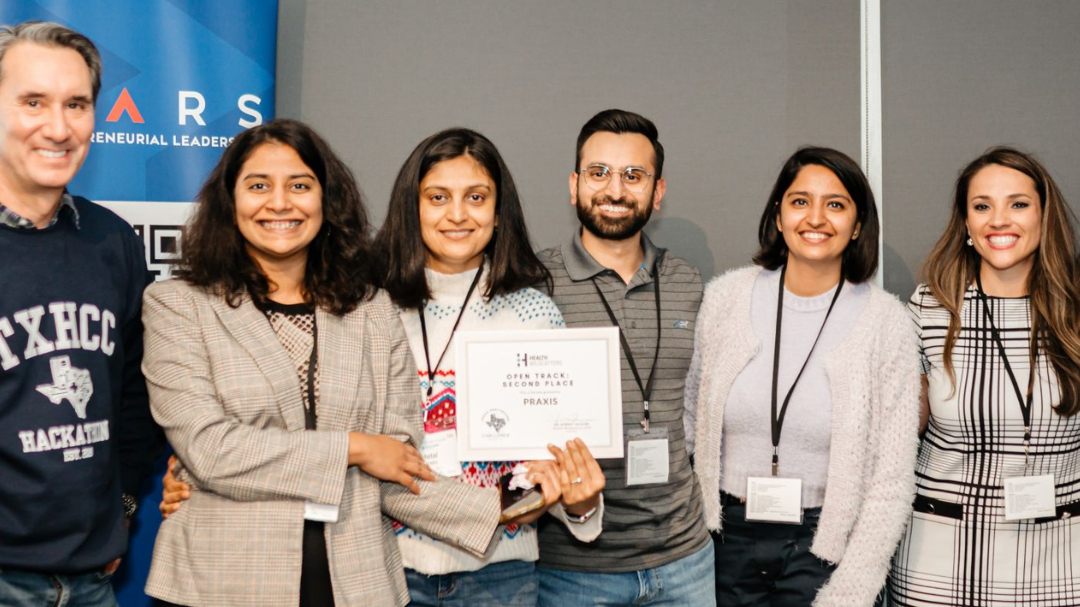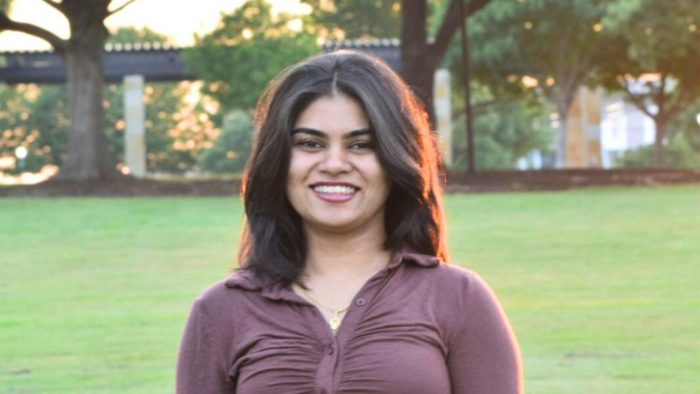
College of Business Innovators Take Top Honors at Texas Healthcare Challenge Hackathon
Two outstanding students from the East Texas A&M University College of Business—Rithika R. and Nirupama Vallabhaneni—helped lead their multidisciplinary teams to second and third-place finishes in the highly competitive TXHCC Open Track at the 7th Annual Texas Healthcare Challenge Hackathon, hosted by Health Wildcatters at Pegasus Park.
Over the course of a two-day, high-energy innovation sprint, more than 120 participants—including students, researchers, clinicians and entrepreneurs—joined forces to tackle pressing healthcare challenges. This year's teams represented a wide range of disciplines and backgrounds, with students collaborating across several universities throughout Texas.
The Open Track encouraged “bold, boundary-breaking healthcare innovations across all areas,” and the top honors went to:
- 1st Place: Listenwell
- 2nd Place: Praxis (including Rithika R.)
- 3rd Place: Wealth AI (including Nirupama V.)
Rithika's team, EMMI, focused on improving maternal health by using clear visual aids, personalized AI chat and timely guidance to help expectant mothers navigate complex insurance and care pathways. Reflecting on the experience, Rithika shared, “What an incredible experience it was to be part of such an amazing team! I learned so much from each of you, and I'm grateful for the opportunity to collaborate. Looking forward to staying connected and continuing to learn from all.”
Nirupama's team, Wealth AI, brought together clinicians, nutritionists and engineers to address the $1 trillion annual cost of diet-related illness and the more than half a million preventable deaths each year. Reflecting on her participation, Nirupama said, “This experience reminded me why I'm pursuing a Master's in Business Analytics — to use data and technology to solve real healthcare challenges and make a difference.”
Both projects exemplify the College of Business's commitment to data-driven, cross-sector innovation in healthcare—combining technology, empathy, and real-world impact. These results also showcase the power of interdisciplinary collaboration, where diverse talents from universities across Texas come together to create meaningful solutions.
More Business
View All Business
Annual Lions Innovation Showcase Promotes Student Ingenuity and Real-World Impact
The College of Business at East Texas A&M University reaffirmed its commitment to transforming lives and fueling innovation during the recent Lions Innovation Showcase, a dynamic event that brought together student entrepreneurs for an inspiring exchange of ideas.

Have You ‘Meta’?: How Bhavana Puttaswamy Turned Data Passion into Global Impact
From mastering complex analytics to powering one of the world’s largest social networks, Bhavana Chickmagluru Puttaswamy, a May 2023 graduate of the Master of Science in Business Analytics program at East Texas A&M University, is a remarkable example of how the College of Business equips students to make an impact at the highest levels of tech.

Finance Student Secures Internship with Toyota
Mariah Dempsey, a Finance major at East Texas A&M University set to graduate in May 2026, recently secured a coveted internship with Toyota—an opportunity that will allow her to deepen her understanding of the auto and mobility industry while working with one of the world’s most respected companies.


